 |
|
|
HOME
|
US Navy -
ships
|
US Navy - air
units
|
USMC - air
units
|
International
Navies
|
Weapon Systems
|
Special Reports |
|
|
Royal Netherlands Navy / Koninklijke
Marine Breguet SP-13A Atlantic |
|
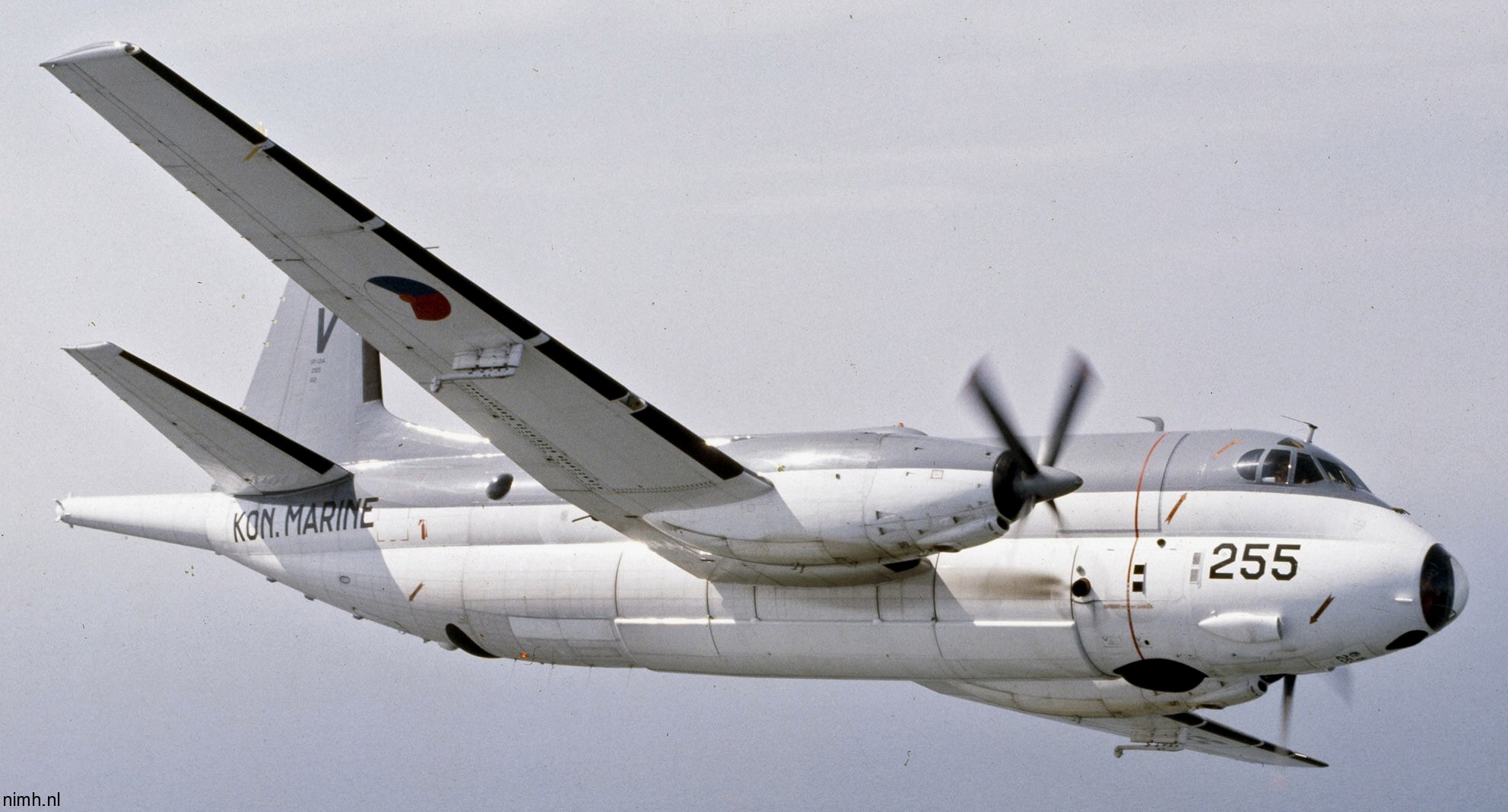 |
|
| 12/24 | |
| Units: | |
|
|
|
The Breguet Br.1150 Atlantic
(Netherlands Navy SP-13A) was a
long-range maritime patrol aircraft designed and manufactured by
French aircraft manufacturer Breguet Aviation. Designed in response to a 1958 NATO specification as a replacement for the Lockheed P2V Neptune, Breguet's submission was declared the winner over several competing bids. To produce the Atlantic, a multinational consortium, Société d'Étude et de Construction de Breguet Atlantic (SECBAT), was established. During 1963, an initial order for 60 Atlantics - 40 for France and 20 for Germany – was received. Follow-on orders from export customers followed shortly thereafter. It was first introduced to operational service during 1965. The Atlantic is also capable of carrying air-to-ground munitions to perform ground-attack missions. An updated version, the Atlantique 2 or ATL2, was produced by Dassault Aviation for the French Navy in the 1980s. A further improved model, the Atlantique 3, was proposed during the 1990s but ultimately unbuilt. Development: In 1958, NATO produced a specification for a long-range maritime patrol aircraft to replace the Lockheed P2V Neptune, with Breguet's design, the Br 1150, chosen as the winner of the competition at the end of the year. A multinational consortium, Société d'Étude et de Construction de Breguet Atlantic (SECBAT) was set up to develop and build the Atlantic. The first prototype made its maiden flight at Toulouse on 21 October 1961, with the second prototype flying on 25 February 1962, followed by two preproduction aircraft with a longer fuselage in February 1963 and September 1964. An initial order for 60 Atlantics - 40 for France and 20 for Germany - was placed in 1963, with deliveries starting in 1965 and continuing to 1968. The production line had shut down by the time the Netherlands placed an order for nine Atlantics and Italy ordered eighteen. Design: The Breguet Br.1150 Atlantic is a twin-engined, mid-winged monoplane with a "double-bubble" fuselage; the upper lobe comprising a pressurised crew compartment, and the lower lobe housing a 9 m (27 ft 6 in) long weapons bay, with sonobuoy tubes aft of the weapons bay. A radar scanner is housed in a retractable underfuselage radome, while a magnetic anomaly detector is housed in a tail boom. It is powered by a pair of Rolls-Royce Tyne turboprop engines. An all-aluminium structure is used throughout the Atlantic's airframe; corrosion is alleged to be a considerable problem due to environmental factors imposed by the maritime environment. The Atlantic was designed for its purpose, instead of refitting or modifying existing designs. Though the primary mission of the Atlantic is anti-submarine and anti-surface warfare, its secondary roles include search and rescue, mine laying and detection and long-range maritime surveillance. The Atlantic can carry either eight guided ASW torpedoes such as Mk.46 Torpedo, or 12 depth charges, or two AM.39 Exocet anti-ship missiles in its internal bomb bay. German Atlantics usually carried Mk.46s only and flew unarmed during the last years of their service. Specifications: Crew: 12 Length: 31.7 m (104 ft) Wingspan: 36.3 m (119 ft 1 in) Empty weight: 24,000 kg (52,911 lb) Max takeoff weight: 43,200 kg (95,240 lb) Powerplant: 2 x Rolls-Royce Tyne RTy.20 Mk 21 2-spool turboprop engines, 4,500 kW (6,100 shp) each (equivalent) Maximum speed: 650 km/h (403 mph, 350 kn) Cruise speed: 315 km/h (196 mph, 170 kn) patrol speed Range: 8000 km Endurance: 18 hours Service ceiling: 9,145 m (30,003 ft) Armament: Mk.46 torpedoes sonobuoys source: wikipedia |
|
| images | |
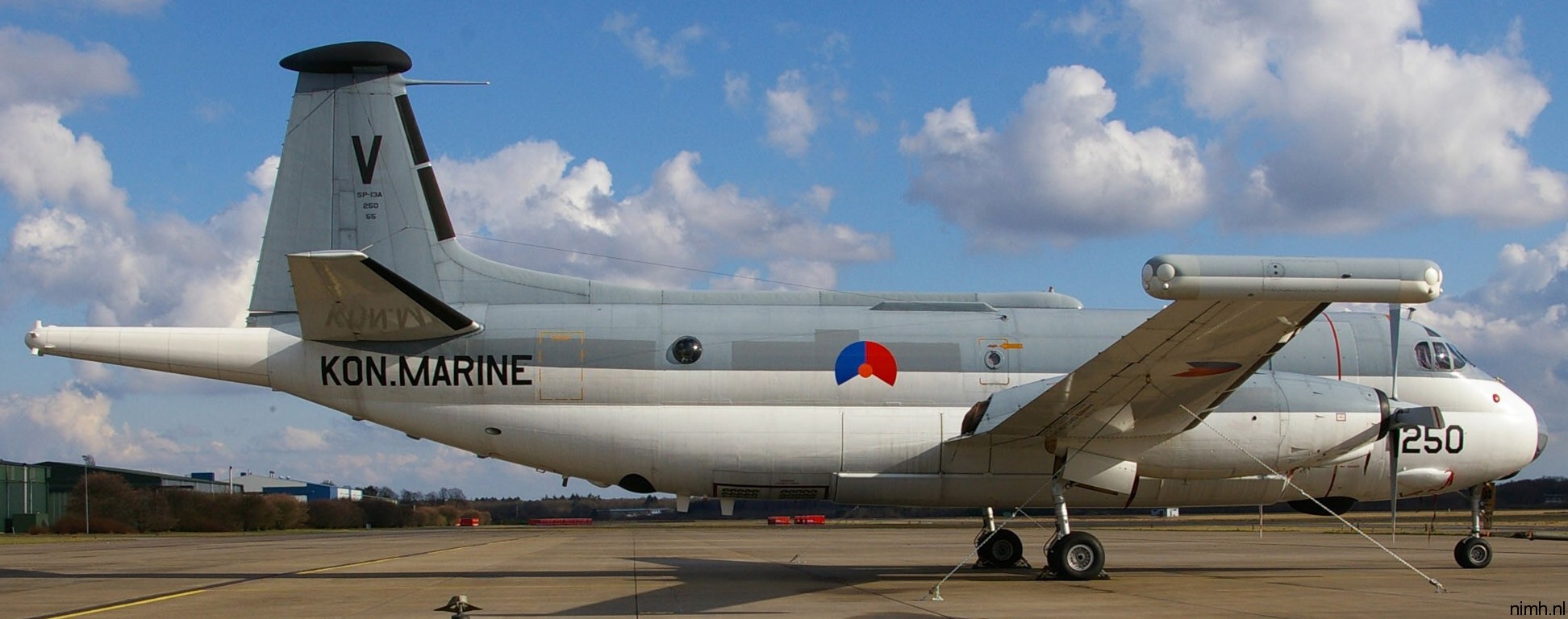 250 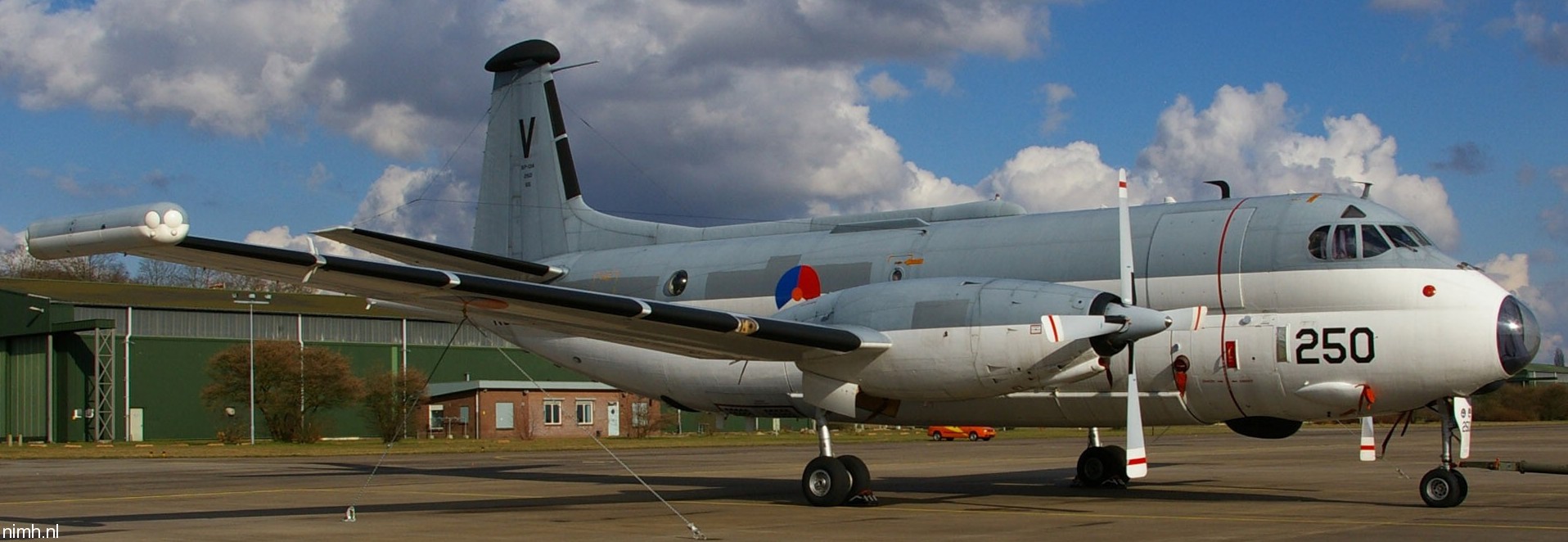 250 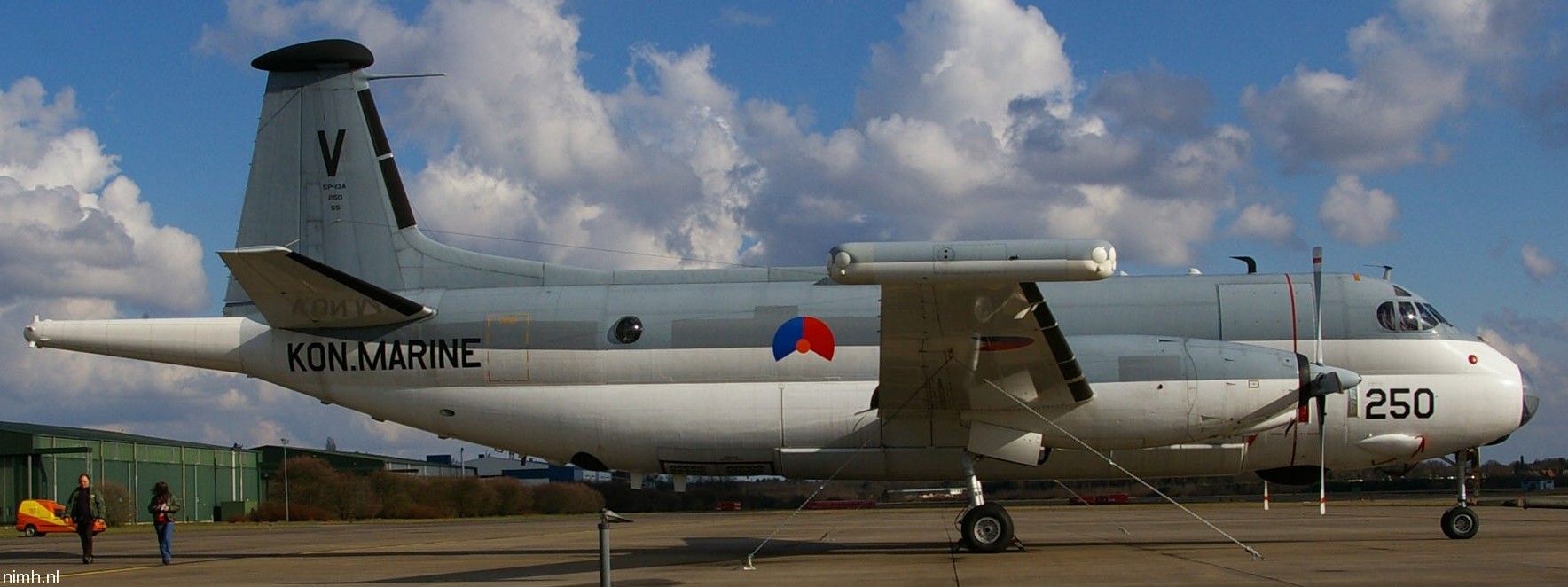 250 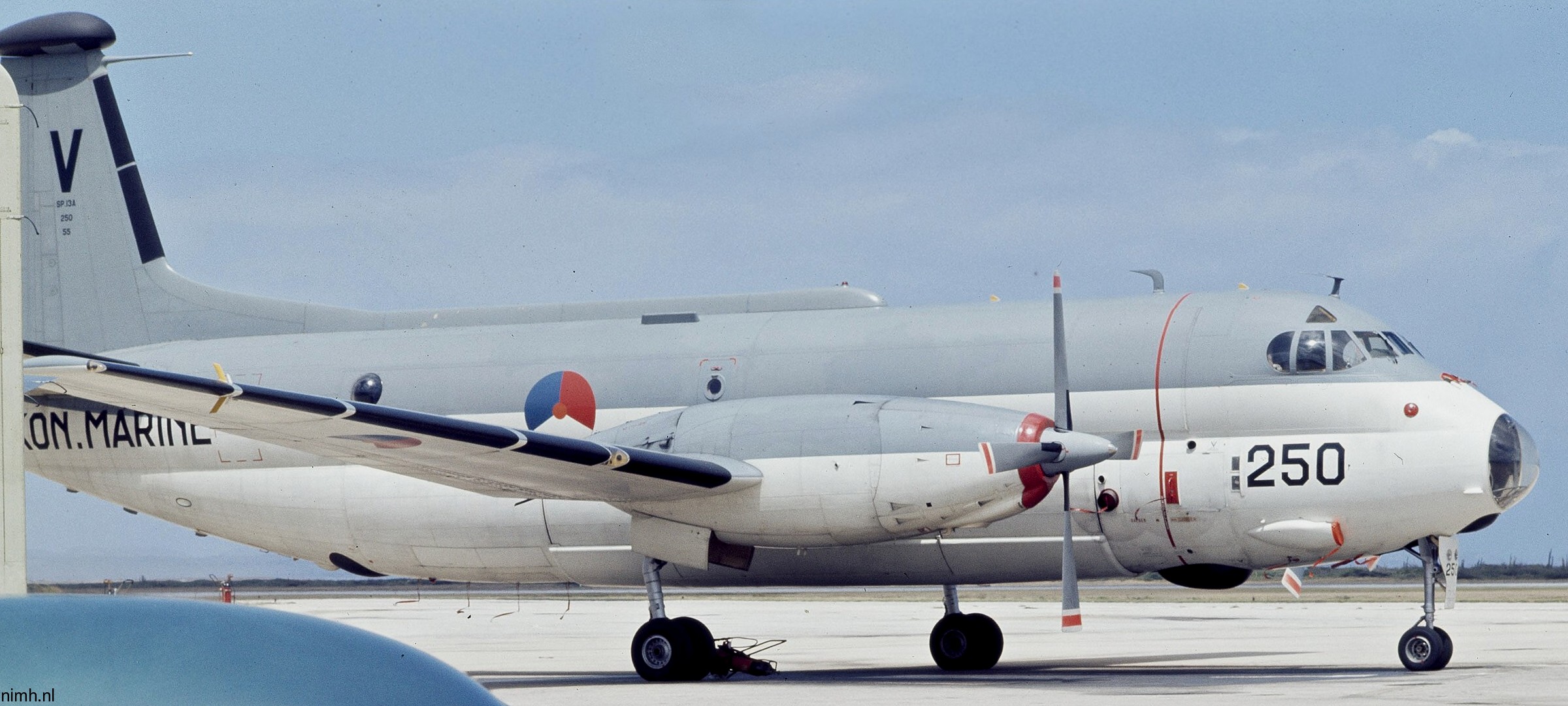 250 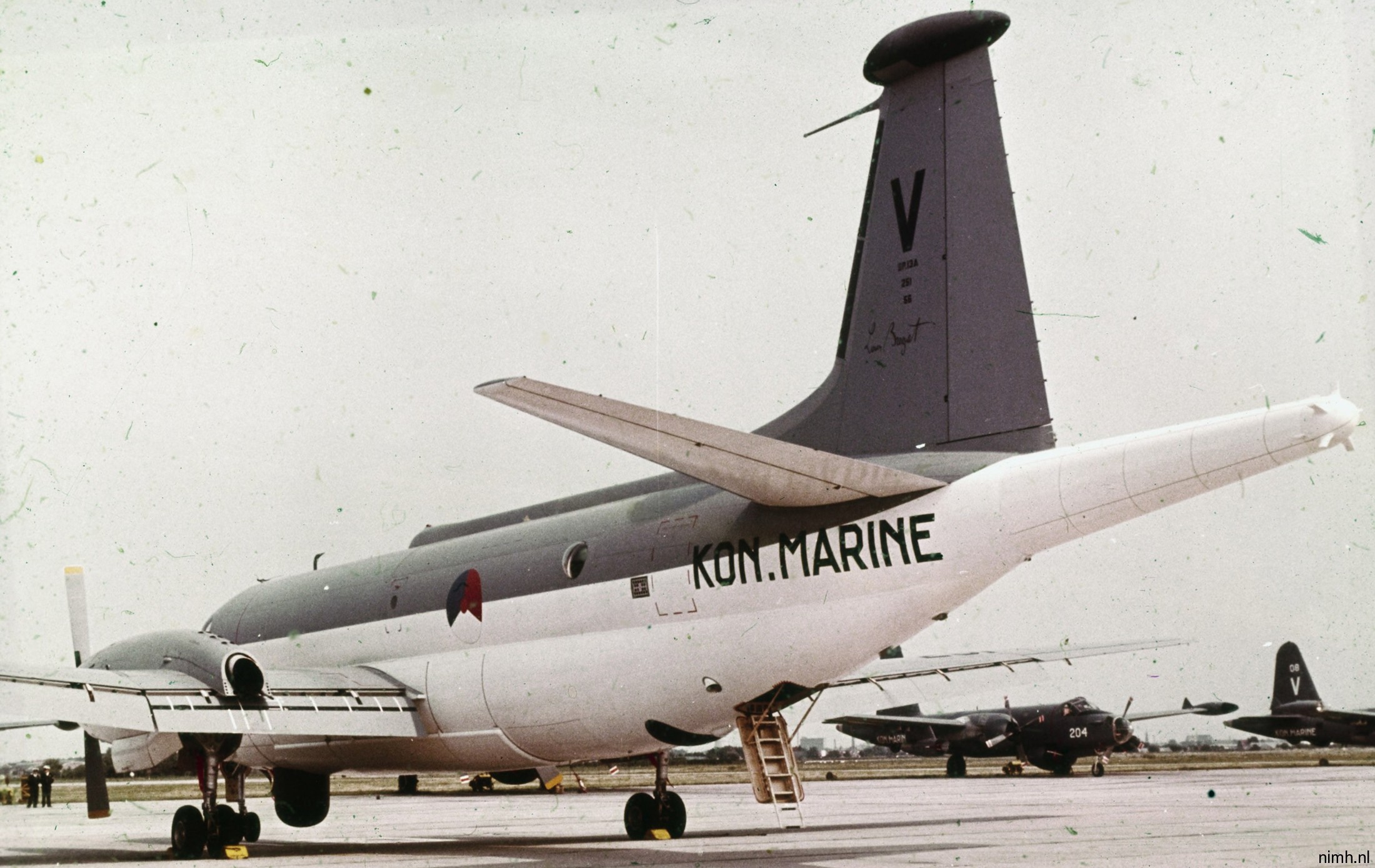 251 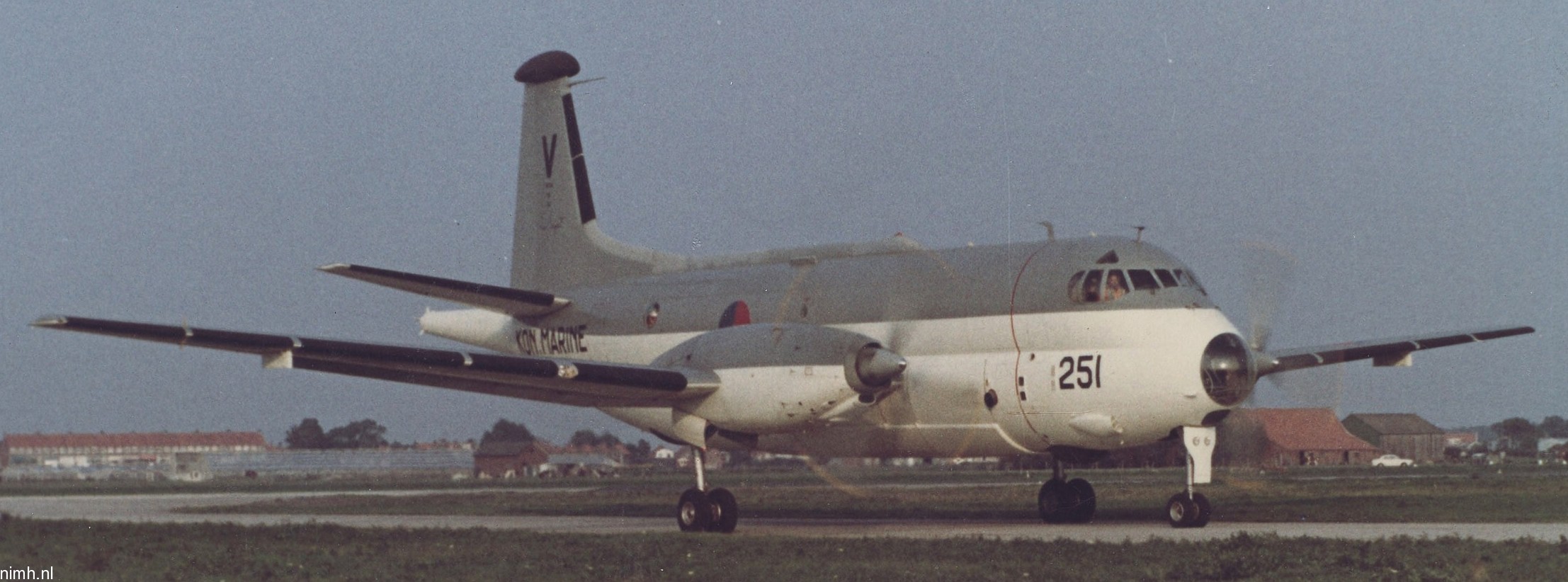 251 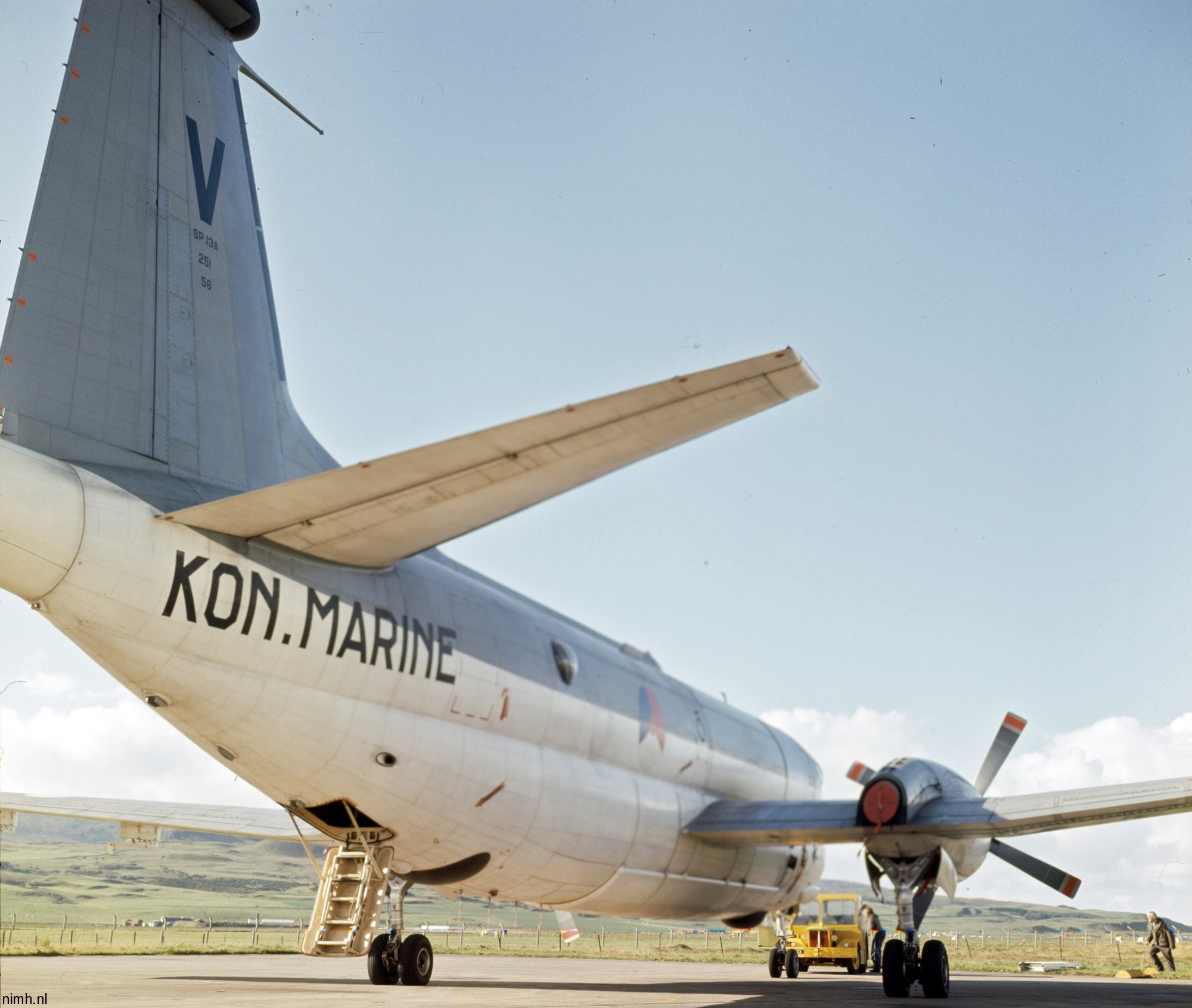 251  251 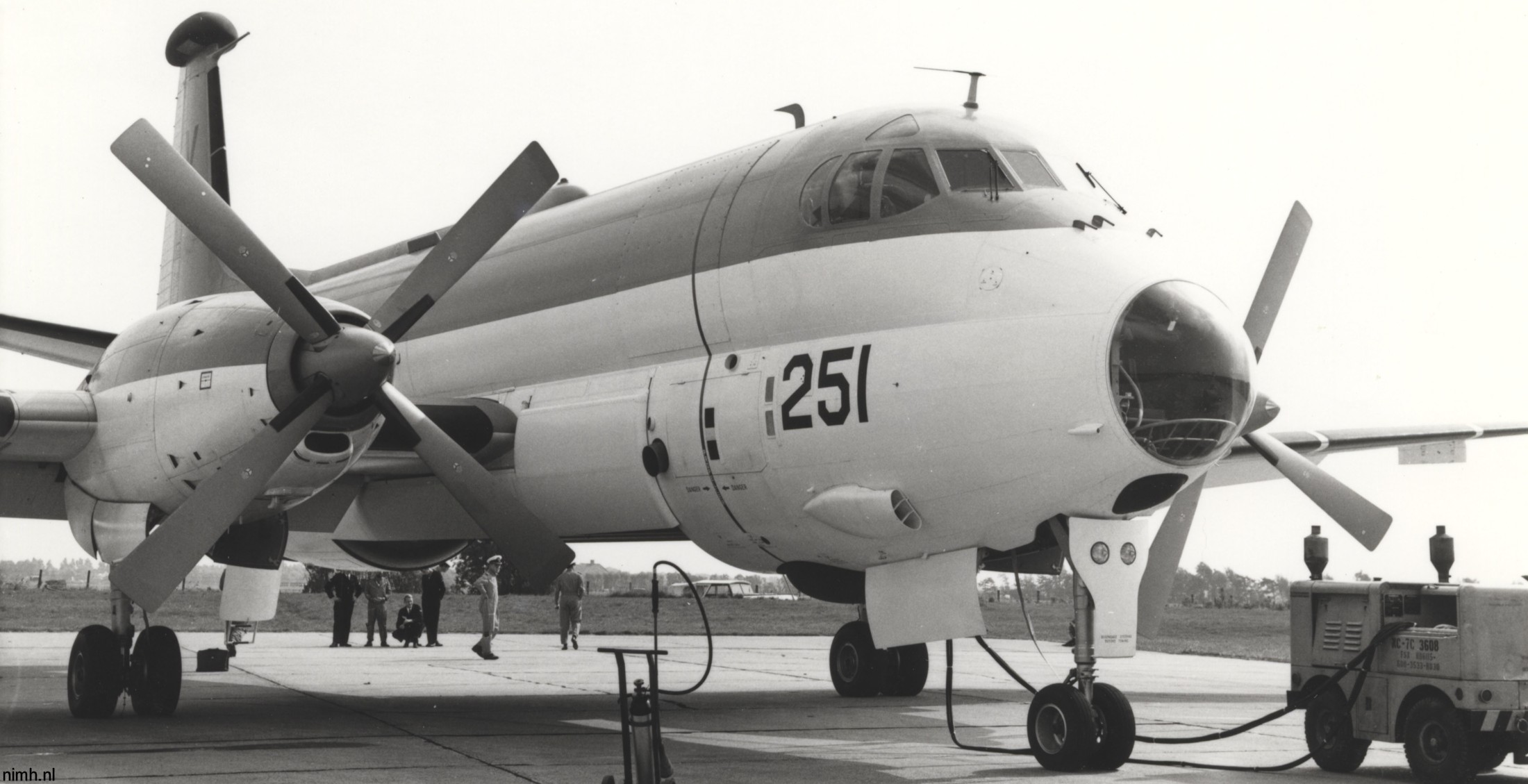 251 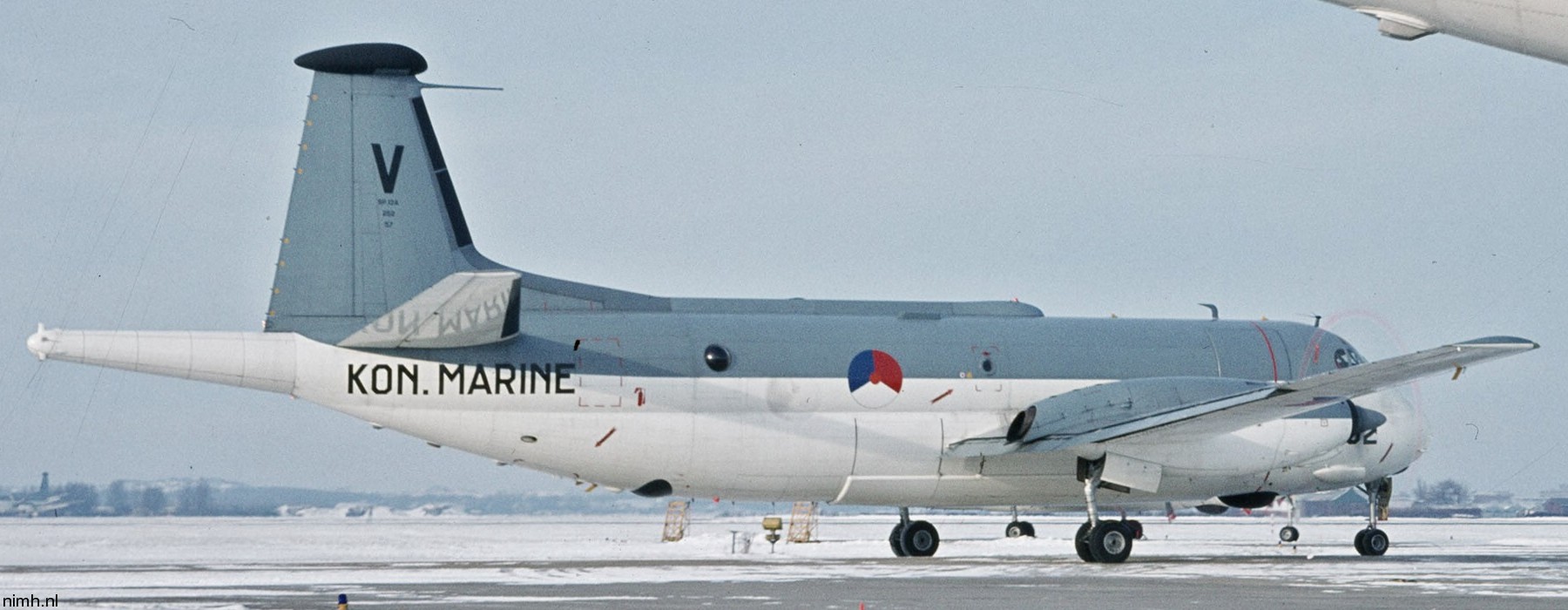 252 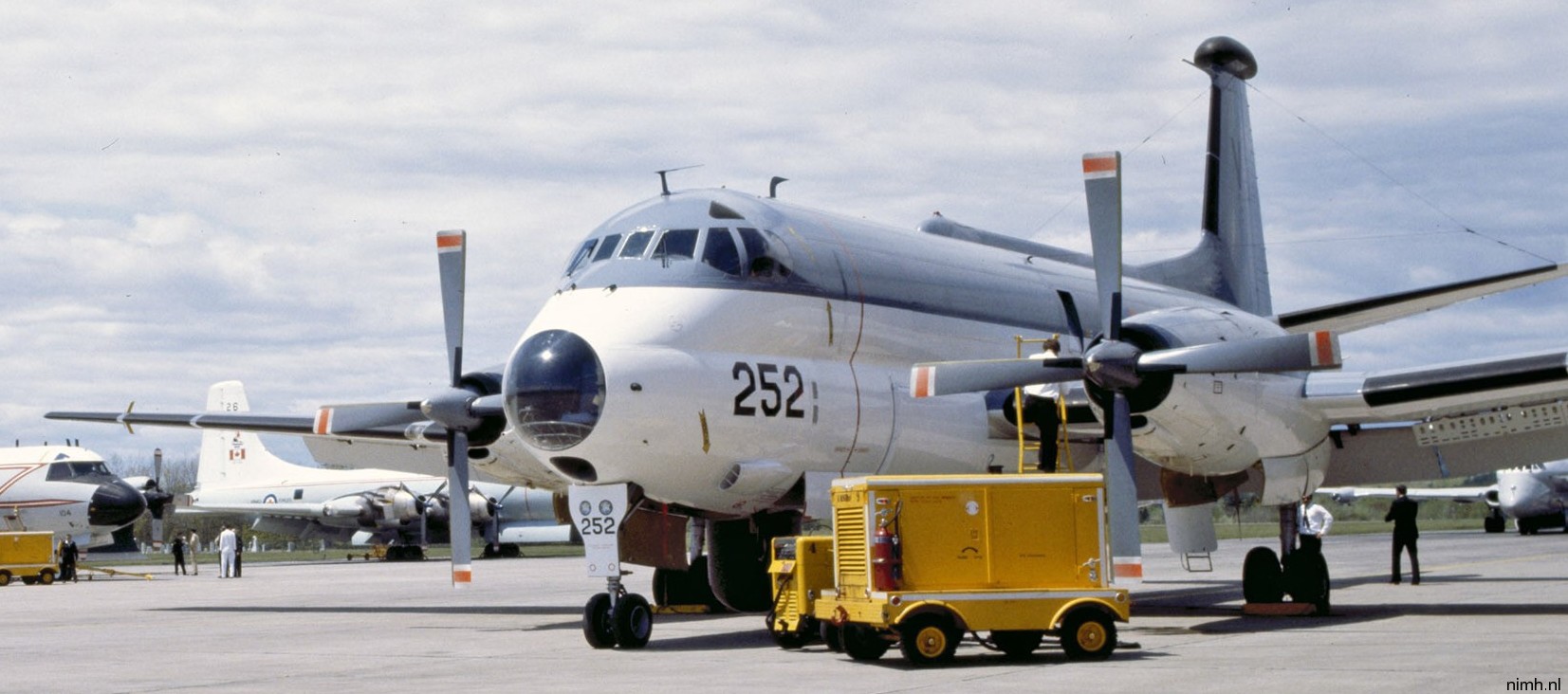 252 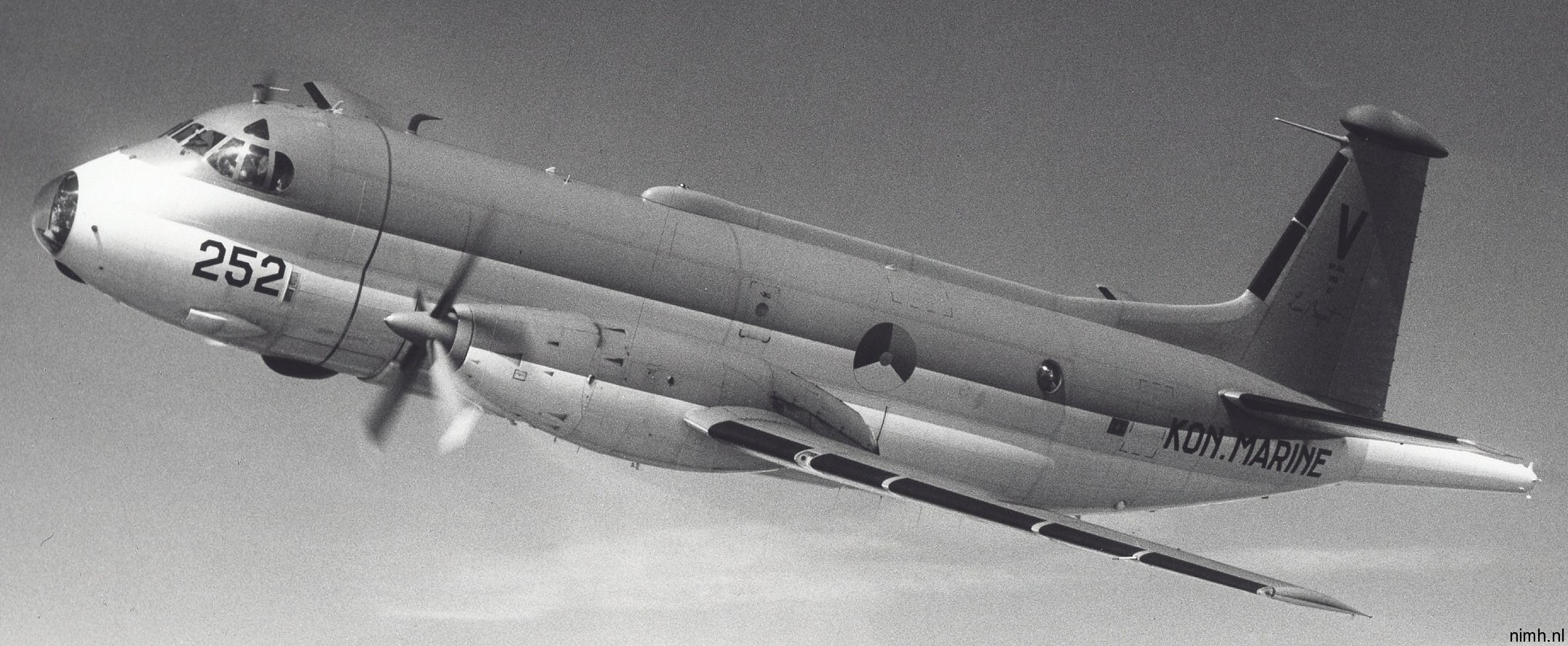 252 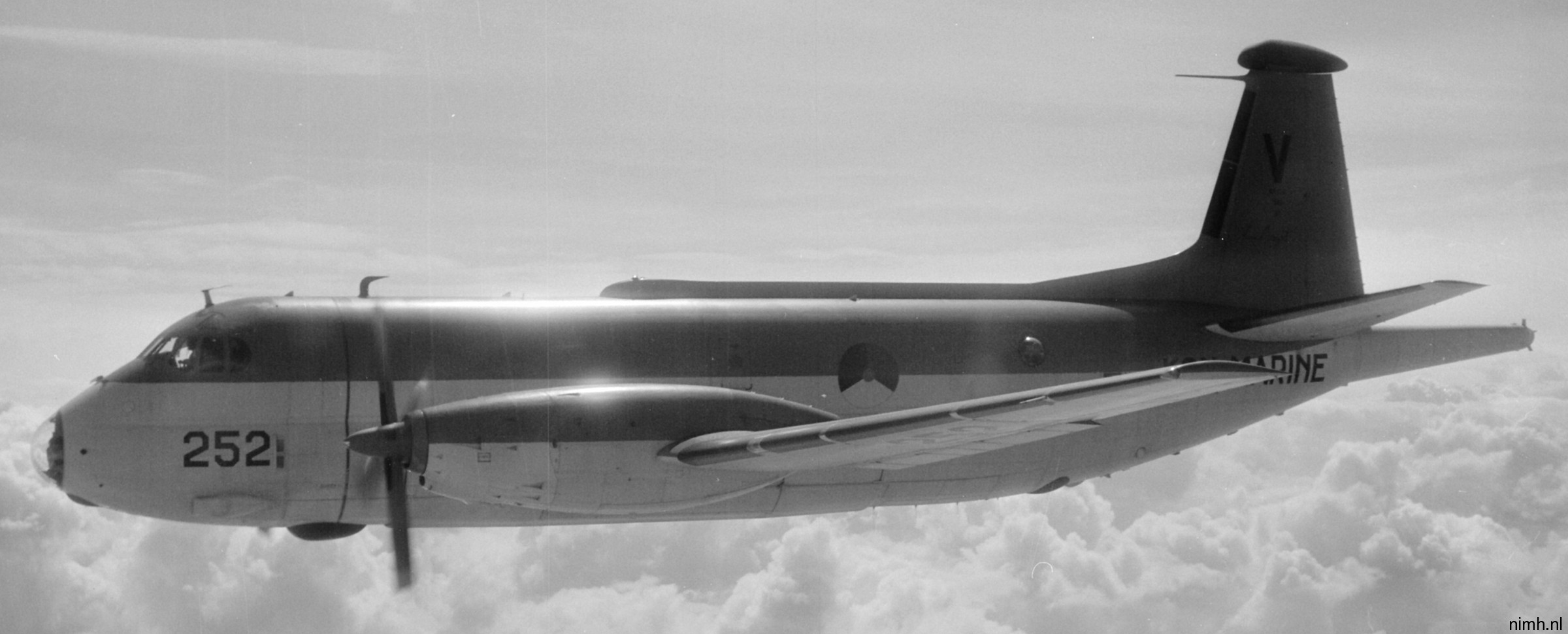 252 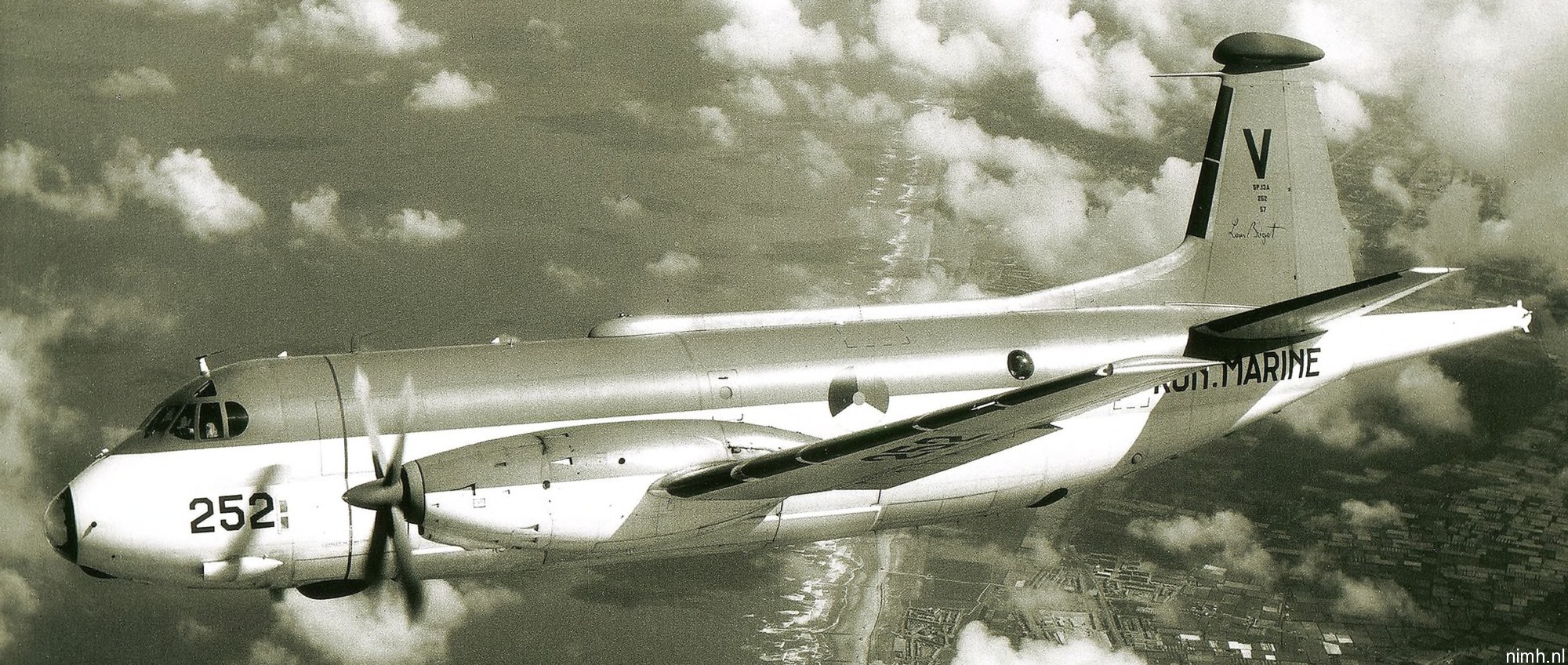 252 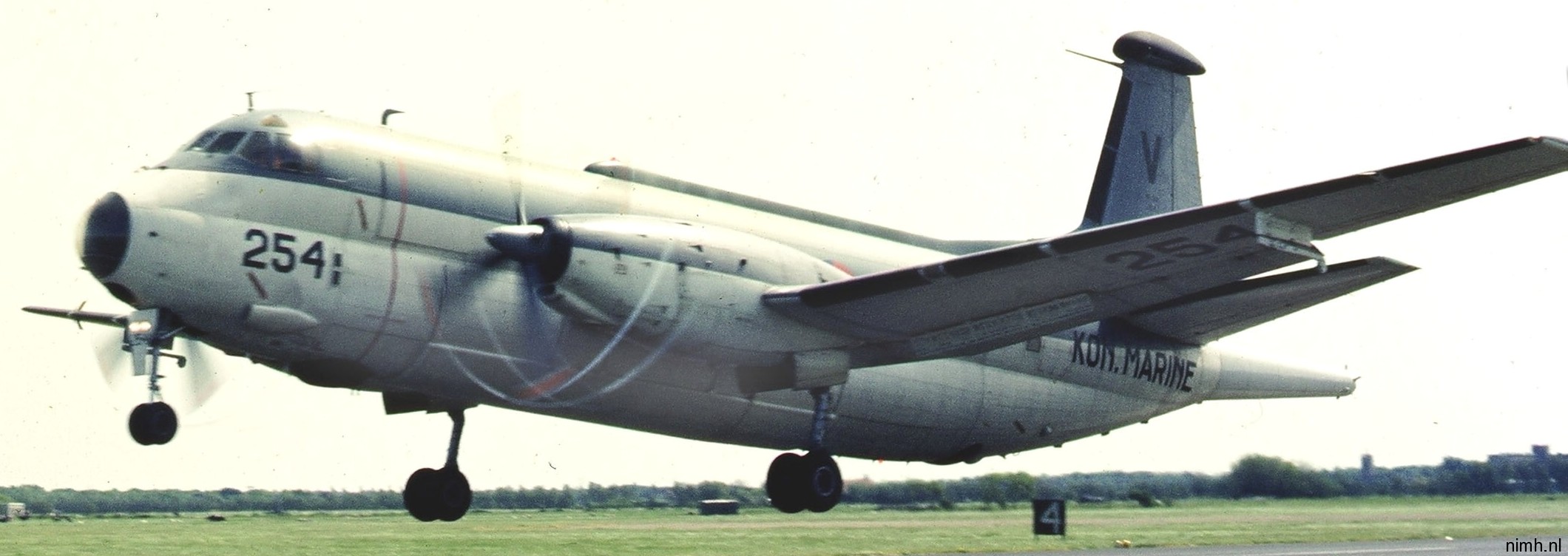 254  255 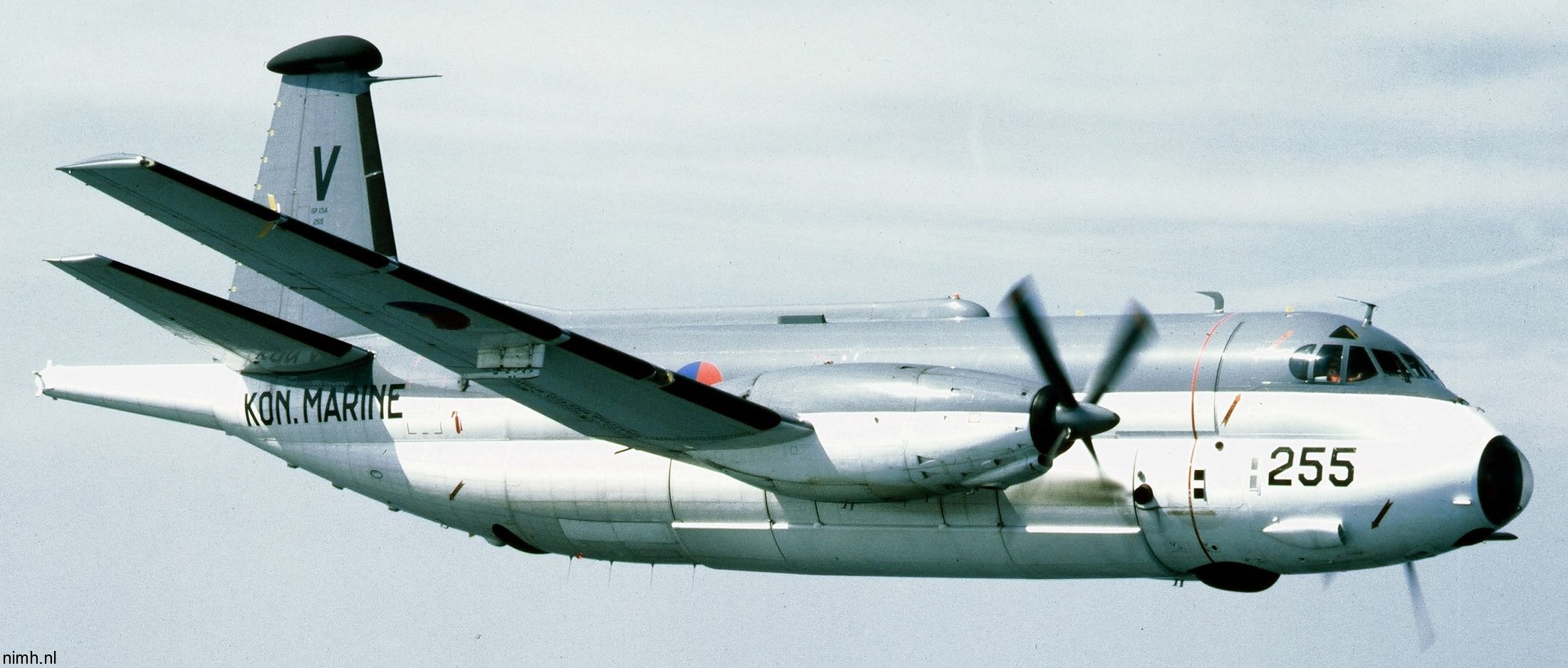 255 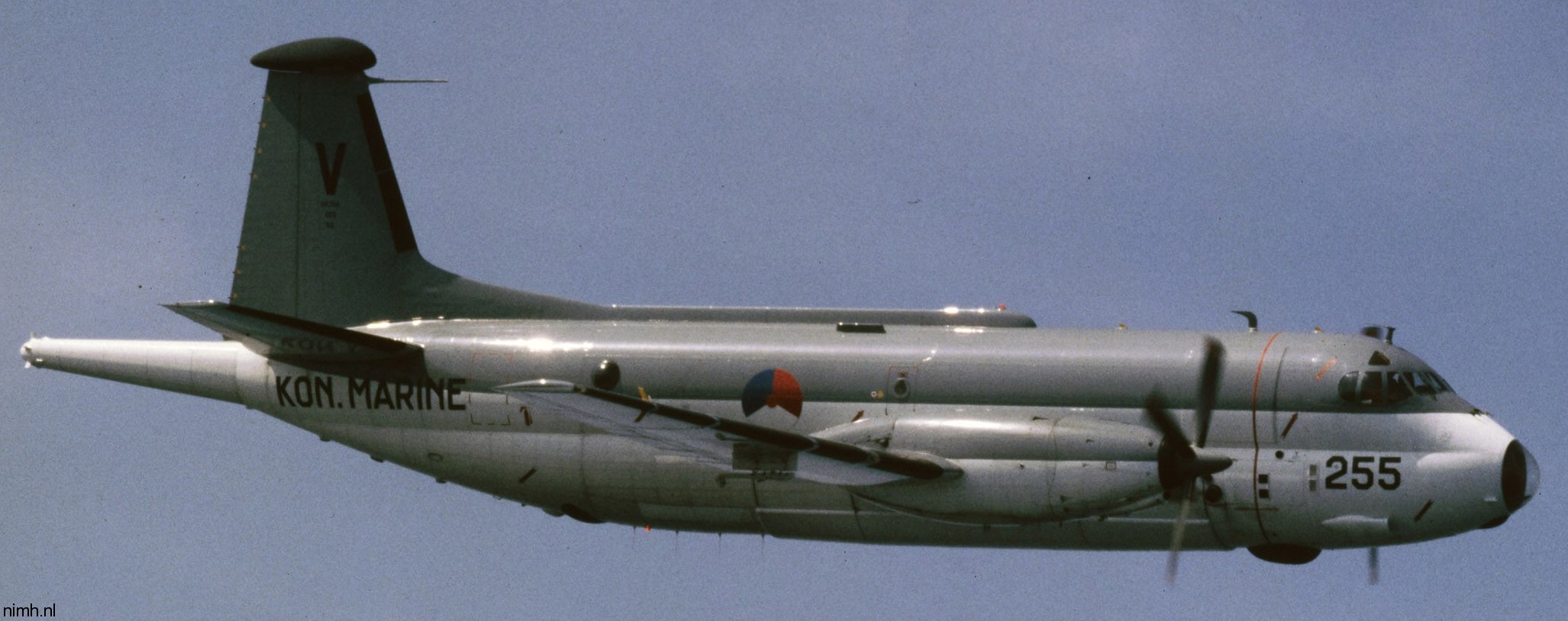 255 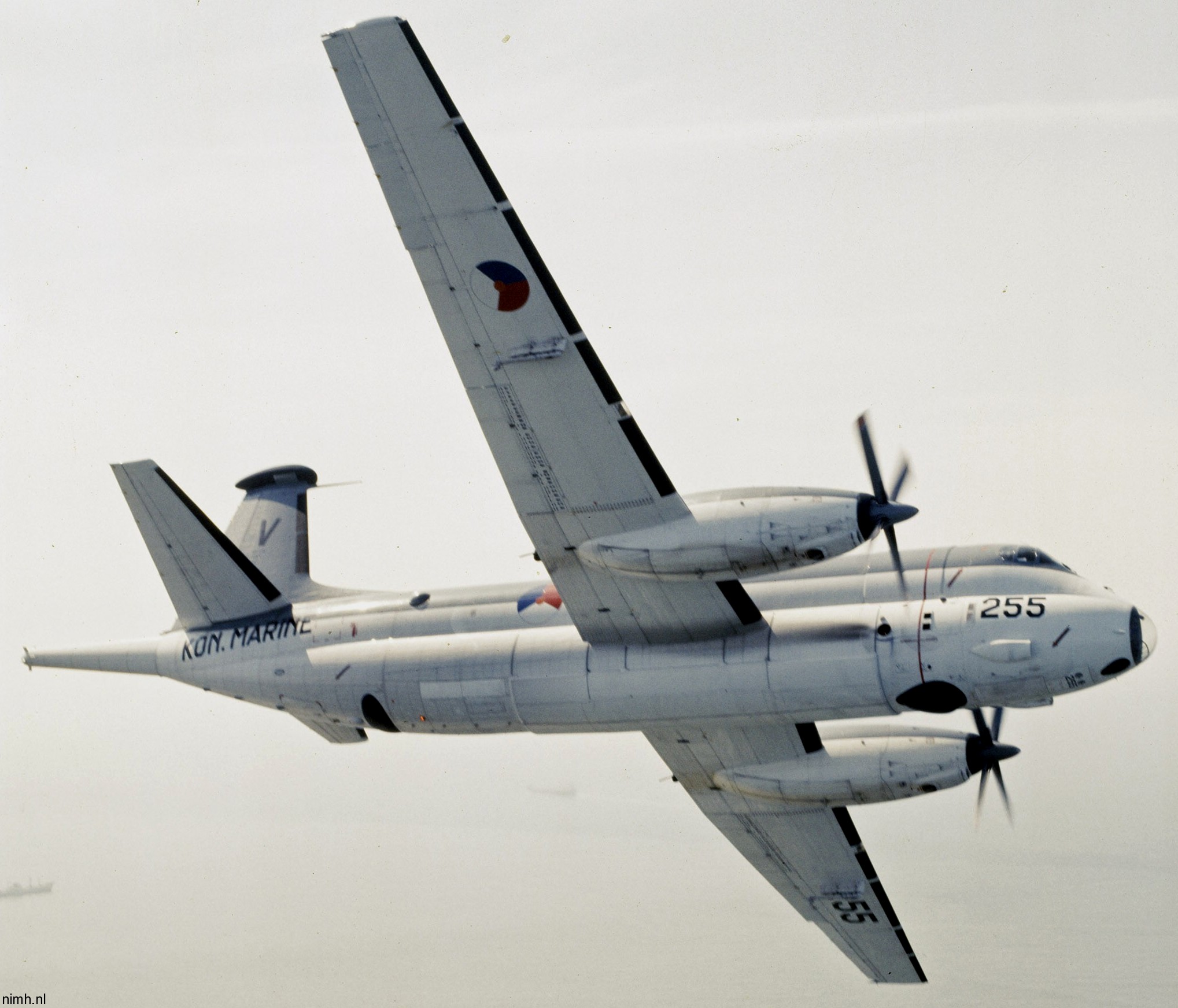 255 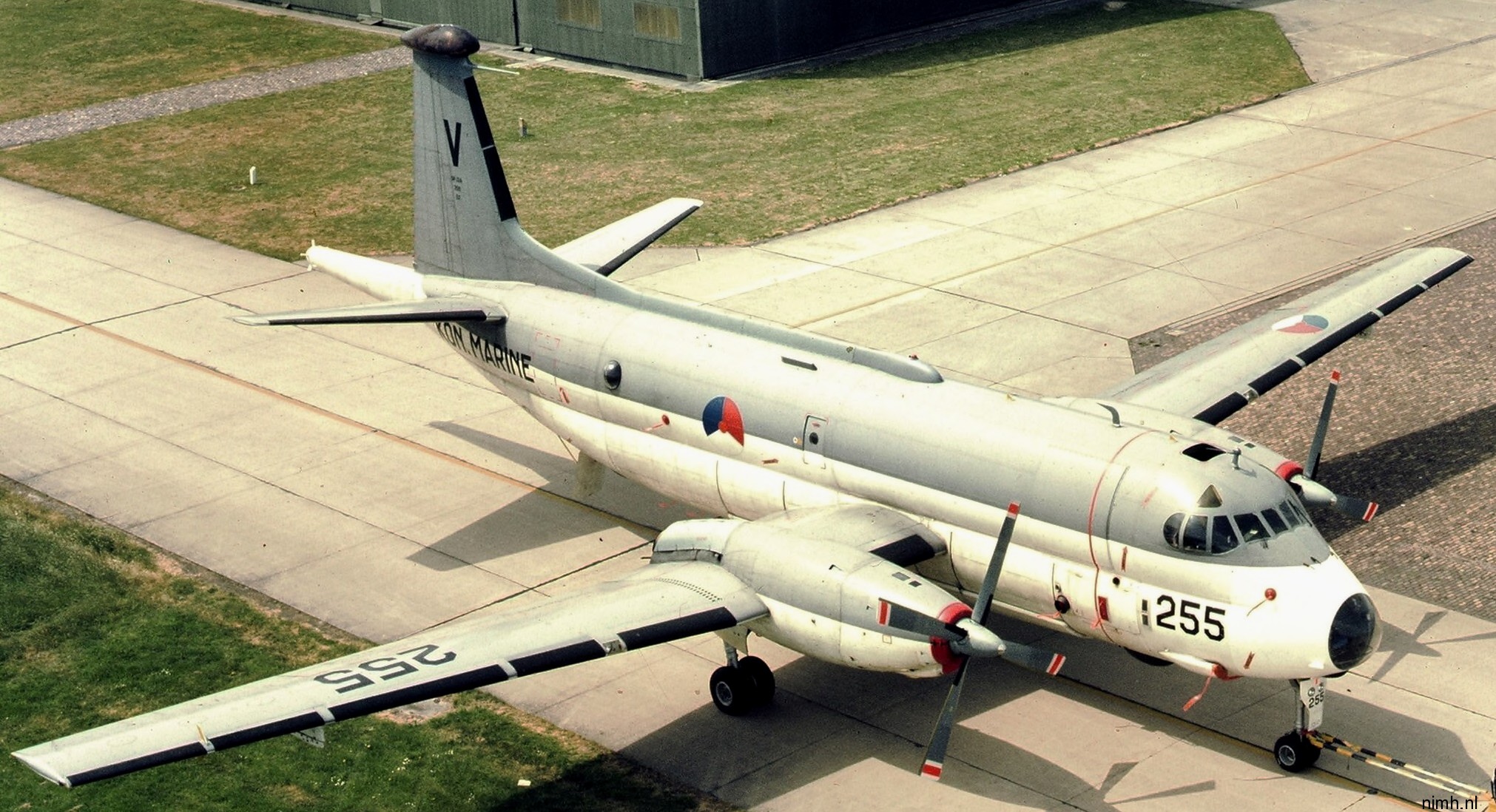 255 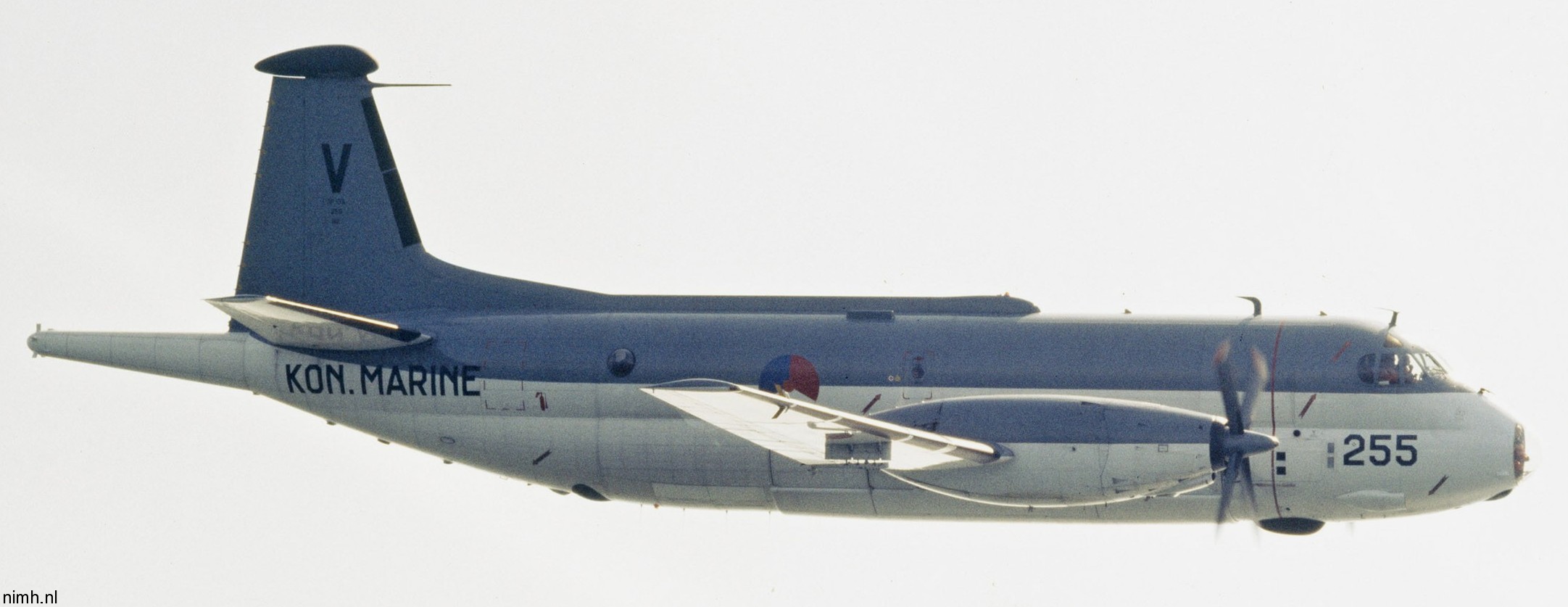 255 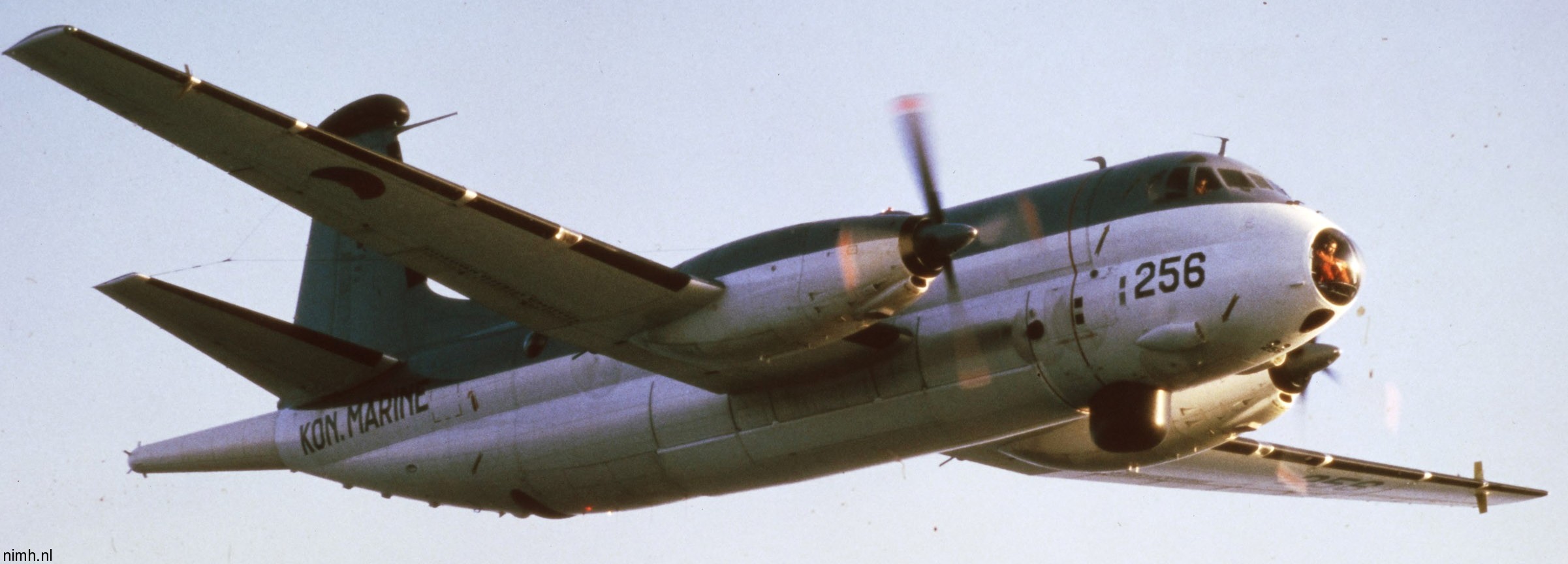 256 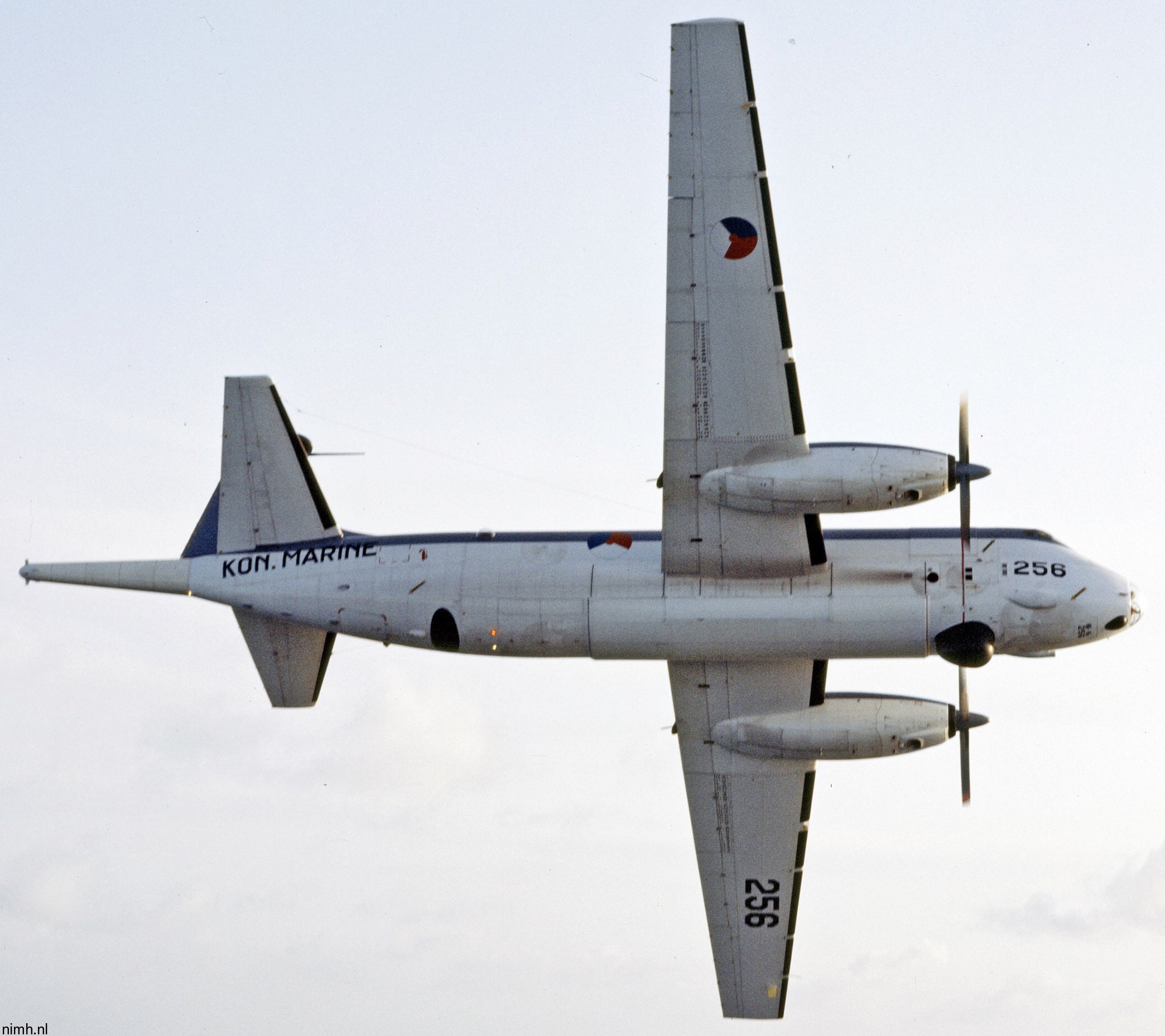 256 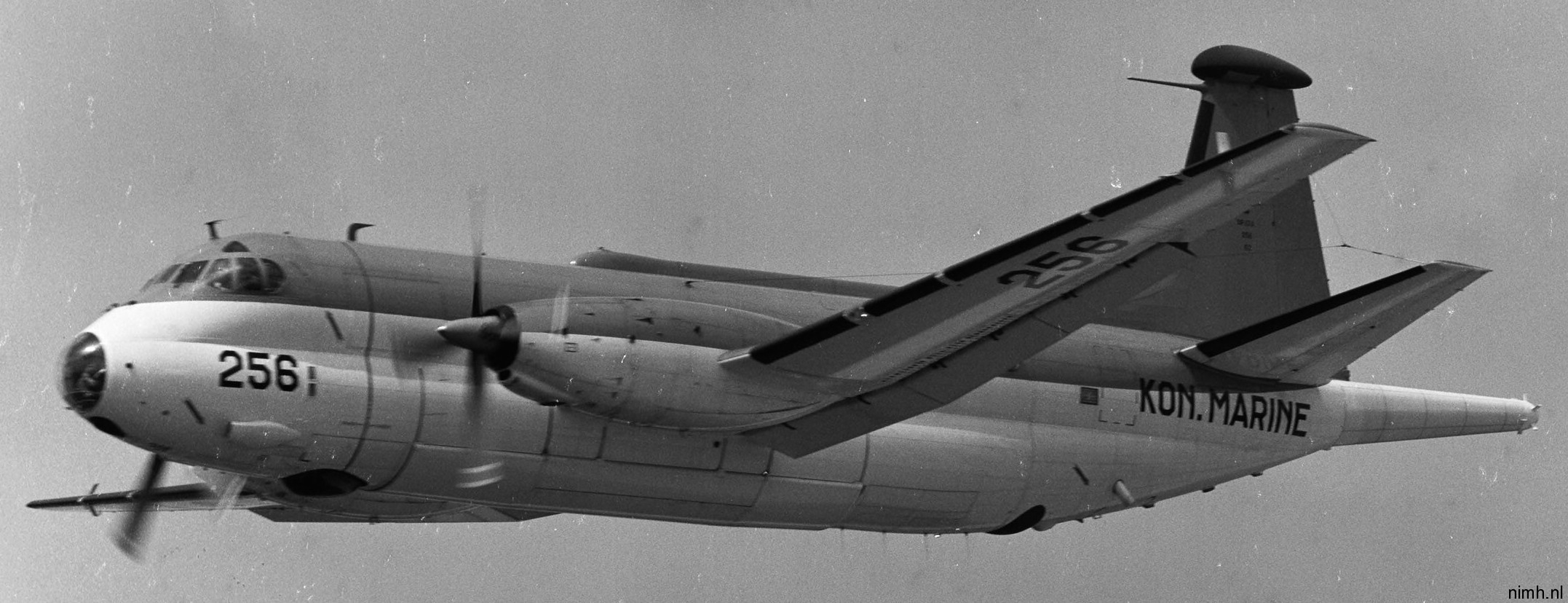 256 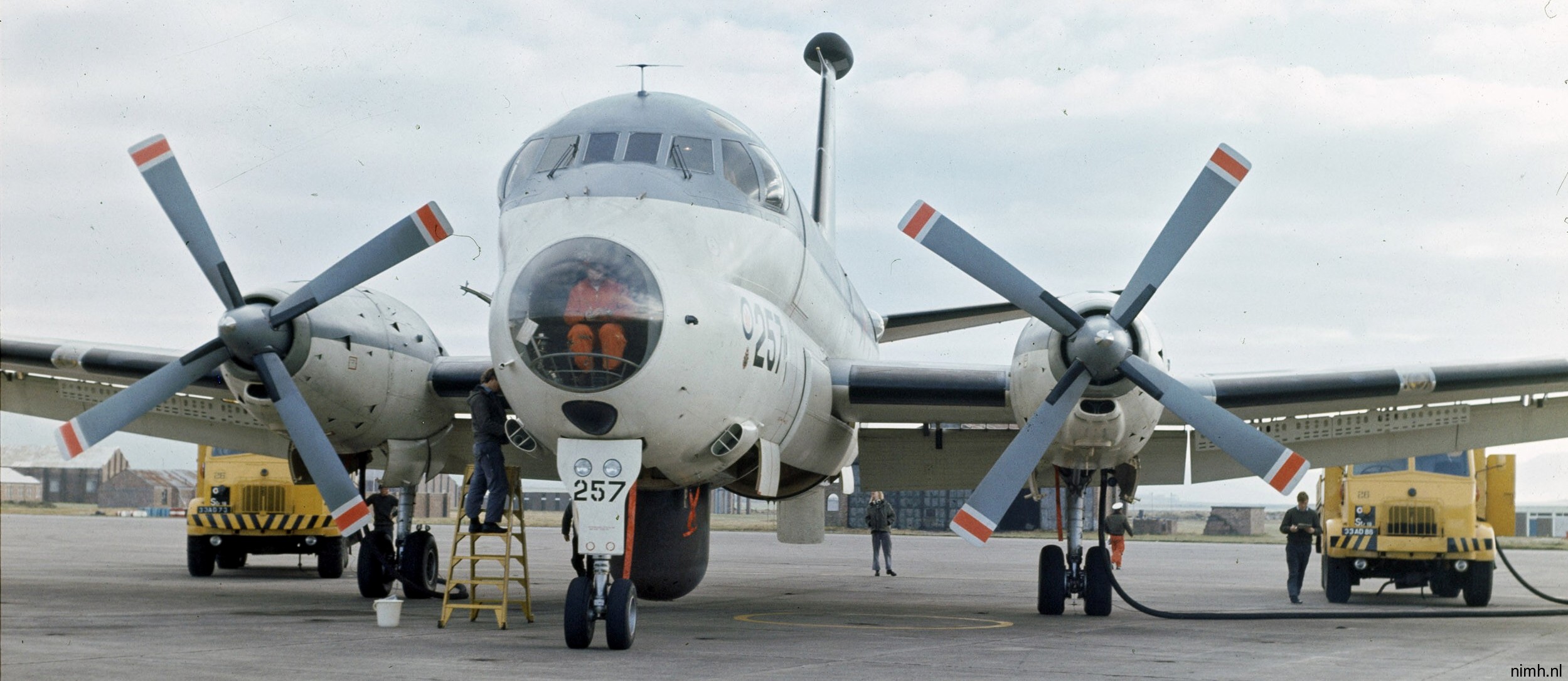 257 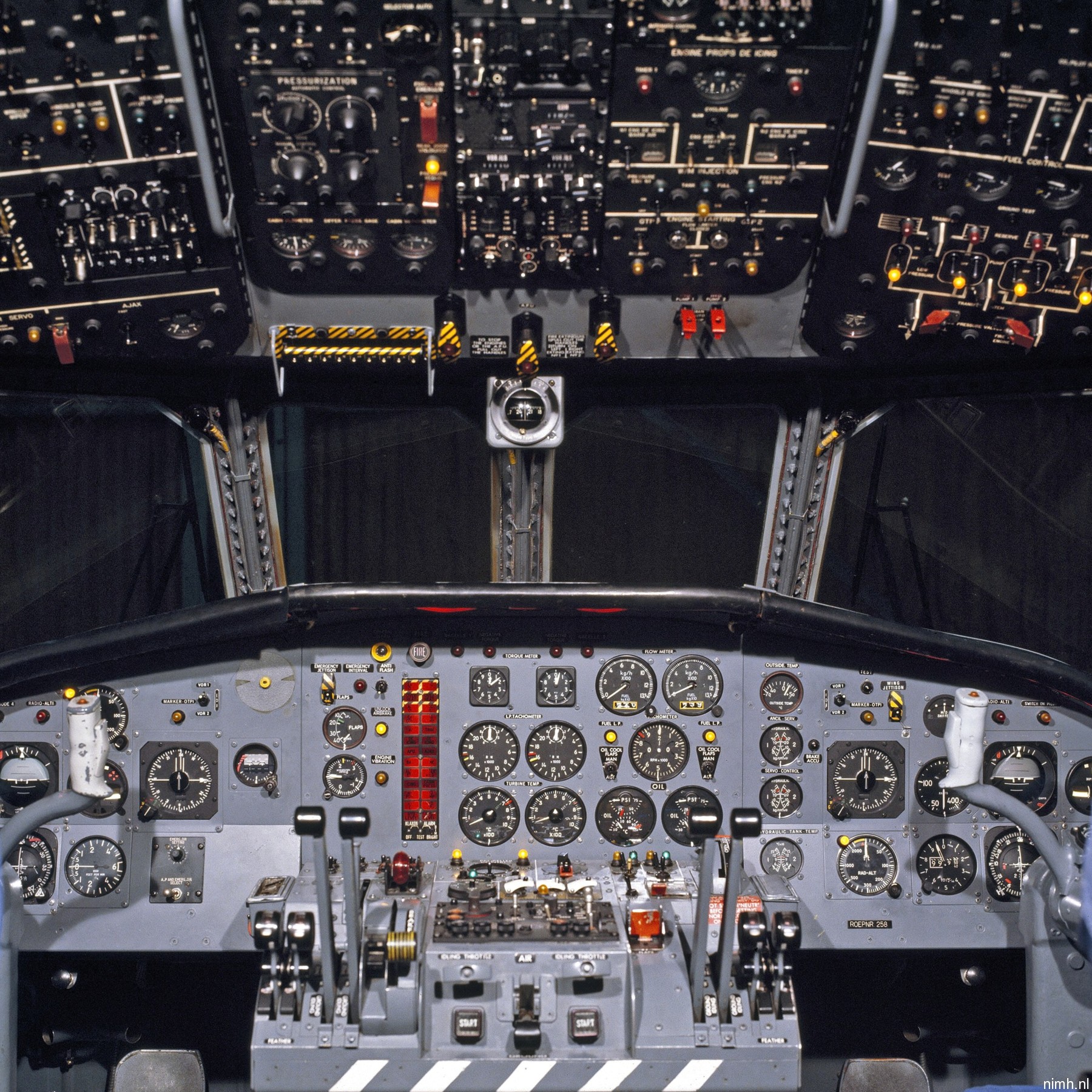 SP-13A Atlantic cockpit 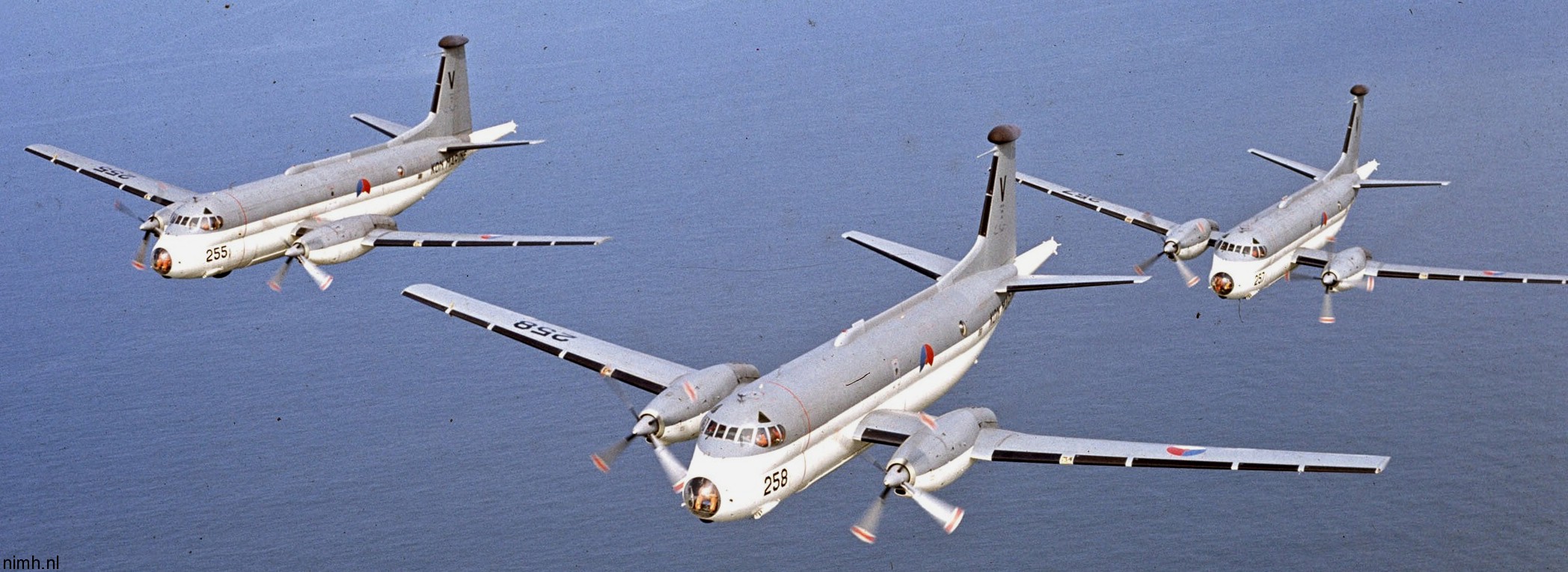 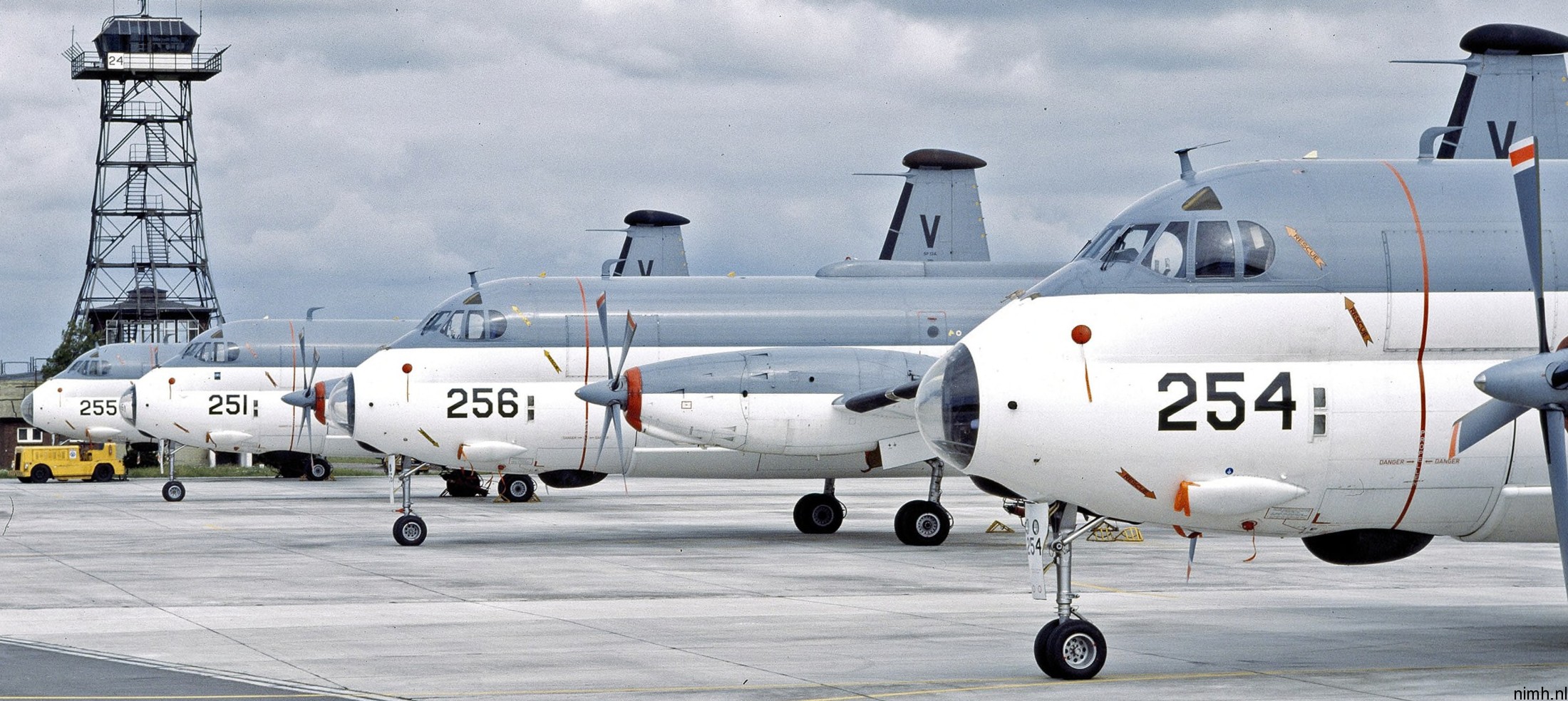  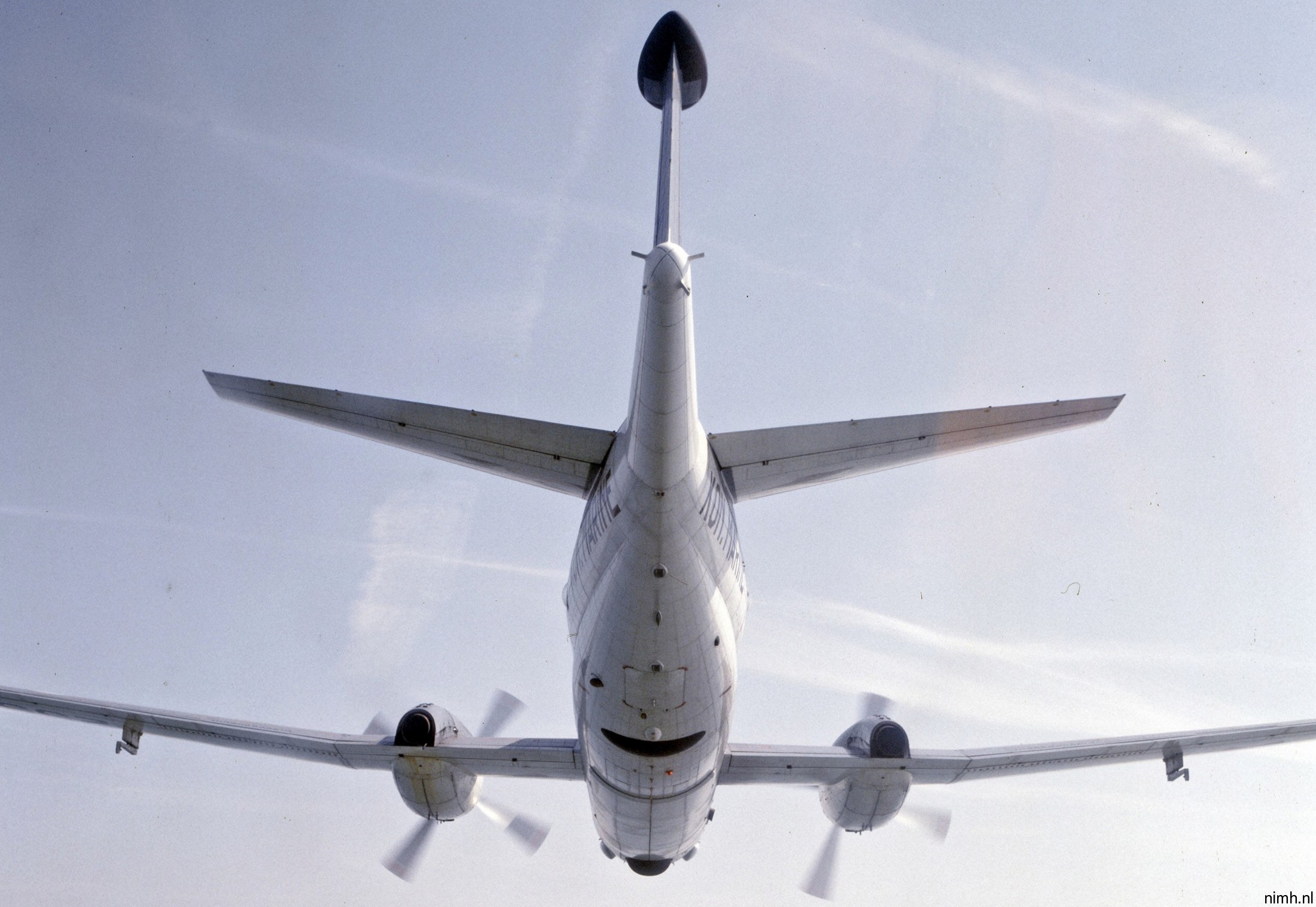 |
|
|
|
seaforces.org
|
Royal Netherlands Navy start page
| |